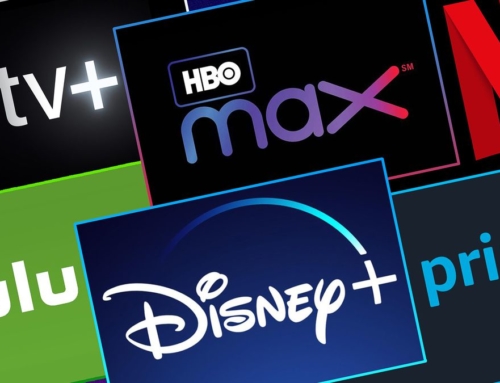Although the Oscars faced another mundane year in 2019, they still managed to incite controversy. From the inclusion and swift backtracking from the idea of a “Most Popular Film” category, to nixing and then re-adding four categories from the televised broadcast, to this years surprise Best Picture winner “Green Book,” The Academy has had their hands full dealing with backlash from their audience. There has even been trouble behind the scenes as the film industry grapples with the changes that streaming services have brought forth.
This year, Netflix gained its first Best Picture nomination with the critically-acclaimed film “Roma.” Although the film didn’t take the top prize, it did win in a number of other prestigious categories including Best Director and Best Foreign Film. While executives at Netflix were celebrating, however, other high-profile members of the film industry have been left to wonder what this means for the future of cinema. One person in particular is none too happy about the change.
Steven Spielberg has recently voiced his concerns and stated that films produced by and made available on streaming services should only be classified as TV movies, thereby making them ineligible for prestigious awards such as the Oscars. Spielberg is so concerned about the effect and influence that companies like Netflix are having on the film industry that he is spearheading efforts to put this change into place.
Spielberg’s production company, Amblin, said in a statement that “Steven feels strongly about the difference between the streaming and theatrical situation. He’ll be happy if others will join his campaign when that comes up at the Academy Board of Governors meeting.”
This declaration has now put the spotlight on Netflix and the content they produce, with its legitimacy being questioned by cinema purists. Such purists have called for the Academy to make their eligibility requirements for film more strict and put a stronger focus on the theatrical elements of films. This includes requesting that films be released in theatres for at least four weeks, as well as a limit on the amount of money studios are allowed to spend lobbying for the Oscars. Netflix is reported to have spent between $25 to $50 million lobbying for Roma this year – a significantly higher amount than studios normally spend on ad campaigns leading up to the Oscars.
With Spielberg continuing to voice his concerns in the media, Netflix recently refuted his criticisms. The company released a statement on Twitter that said: “We love cinema. Here are some things we also love: Access for people who can’t always afford, or live in towns without, theatres. Letting everyone, everywhere enjoy releases at the same time. Giving filmmakers more ways to share art. These things are not mutually exclusive.”
We love cinema. Here are some things we also love:
-Access for people who can't always afford, or live in towns without, theaters
-Letting everyone, everywhere enjoy releases at the same time
-Giving filmmakers more ways to share artThese things are not mutually exclusive.
— Netflix Film (@NetflixFilm) March 4, 2019
The public feud has caused other celebrities to join in on the conversation. Director Ava DuVernay has come to the defense of Netflix, citing the company’s commitment to international distribution as a cause for filmmakers to celebrate. Other celebrities such as Franklin Leonard have questioned whether or not Spielberg appreciates the work that Netflix has put into representing minority filmmakers in an industry that often overlooks and undervalues such voices.
The fact of the matter is that Netflix, and other streaming services, are not going away anytime soon. With such services readily available and a majority of communities equipped with reliably fast internet, the way in which people consume media as a whole is changing. Prices at movie theaters have risen to absurd highs, and because of this, more and more people are choosing to seek out film experiences in new ways. Film studios, whether they are new or traditional, would be smart to adapt distribution methods to work concurrently with the ways our society is changing. To try and impede such progress, as Spielberg is attempting to do, is counterproductive.
It’s also important to remember that these issues aren’t black and white. There is a wide array of roles and people involved in the film industry, all of whom have different needs and measures when it comes to their success. Surely there is compromise within the solutions being suggested that can please everyone, at least to some degree. One such solution, as suggested by director Sean Baker, is for streaming services to introduce a “theatrical pricing tier” that would allow consumers to see the streaming companies’ films in theatres for free.
1/3 Wouldn’t it be great if @netflix offered a “theatrical tier” to their pricing plans? For a nominal fee, Netflix members could see Netflix films in theaters for free. I know I’d spend an extra 2 dollars a month to see films like Roma or Buster Scruggs on the big screen.
— sean baker (@Lilfilm) March 3, 2019
In any case, this is not the first time the film industry has been faced with a change — nor will it be the last. Industries such as this are resilient ones, and they will continue to be. People still want to watch films; all that has changed is the ways in which those films are consumed. Your level of admiration for the so-called “theatrical experience” will dictate where the land on this particular subject. There’s no denying, though, that streaming is at the forefront of the industry today and will be for the foreseeable future. The Academy would be smart to listen to the voices that are thinking ahead, instead of those who are living in the past, when it comes to their decision on what constitutes a film at the all-too-traditional Oscars.











Leave A Comment
You must be logged in to post a comment.